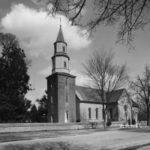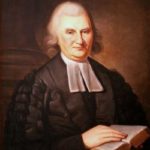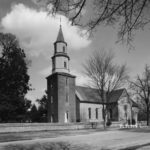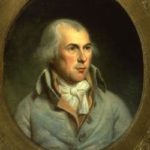The First Amendment has two clauses related to religion: one preventing the government establishment of religion (the establishment clause) and the other protecting the ability to freely exercise religious beliefs (the free exercise clause). Students examine the First Amendment’s Establishment Clause: why it was included in the Bill of Rights, the issues it addresses, and how the Supreme Court has interpreted it over time.
Religion and the States: Why the Constitution is Silent on God

This short video explains why the Constitution is silent on religion. The Founders believed that religion was a matter best left to the states. As Professor Jeffry Morrison notes, the Founders were not unconcerned about religion, but a belief in federalism led them to allow individual states to make decisions about religious matters.
Balancing Religious Freedom and Government Interests
This lesson explores the Supreme Court case Tandon v. Newsom (2021) regarding religious liberty.Throughout the COVID-19 pandemic, the state government of California along with many of its county governments placed restrictions on gatherings of people. One of their regulations had the effect of preventing more than three households gathering together at a time for any in-home prayer and Bible studies. Plaintiffs sued the state, arguing that these restrictions violated the First Amendment since many secular businesses were allowed to have more than three households of people within it at any time, and that therefore religion was being specifically discriminated against. The Supreme Court recently released a per curiam (unsigned) decision concerning the constitutionality of these regulations.
James Madison and Religion

This short video reviews James Madison’s attitudes towards religion. Although he believed that religious belief was essential in a virtuous republic, he also was a religious libertarian for whom God alone was the “lord of conscience.” Professor Jeffry Morrison suggests that Madison’s Calvinist teachers (e.g., Dr. John Witherspoon) shaped his belief that government should be blind toward religion.
First Amendment Overview
Congress shall make no law respecting an establishment of religion, or prohibiting the free exercise thereof; or abridging the freedom of speech, or of the press; or the right of the people peaceably to assemble, and to petition the Government for a redress of grievances.
From Provocative to Productive: Teaching Controversial Topics
Get first steps for creating a respectful yet vibrant environment for students to explore diverse ideas on controversial topics, from politics to profanity, religion to racism. Four guidelines and a debate leader checklist provide a foundation for those seeking to steer productive conversations about controversial subjects.
Religion in Colonial America

This short video examines impact of Reformed Christianity on the minds and hearts of the Framers of the Constitution. Influenced by the writings of John Locke, Algernon Sydney, and John Calvin, Founders such as George Washington and John Adams believed that religion should play an informal, though important, role in American Society. Professor Jeffry Morrison examines Adams’ contention that colonial fears of British bishops helped to inflame revolutionary sentiments.
Wisconsin v. Yoder (1972)
Under what conditions does the state’s interest in promoting compulsory education override parents’ First Amendment right to free exercise of religion? This resource is a case summary of Wisconsin v. Yoder, which tested the right of parents to withdraw their child from school for religious reasons.
Bill of Rights Overview
The Bill of Rights is the first 10 amendments to the U.S. Constitution. These amendments guarantee essential rights and civil liberties, such as the freedom of religion, the right to free speech, the right to bear arms, trial by jury, and more, as well as reserving rights to the people and the states. After the Constitutional Convention, the absence of a bill of rights emerged as a central part of the ratification debates. Anti-Federalists, who opposed ratification, pointed to the missing bill of rights as a fatal flaw. Several states ratified the Constitution on the condition that a bill of rights be promptly added. Pop over to the National Constitution Center’s learning module to discover more!
James Madison and the First Amendment

This short video traces the evolution of Madison’s attitude towards the religious liberty guarantees of the First Amendment. Initially opposed to a Bill of Rights as both inappropriate and dangerous, Madison’s views changed as a result of political and philosophical considerations. Professor Jeffry Morrison emphasizes Madison’s belief that religion should play a vital but informal role in the life of the republic.